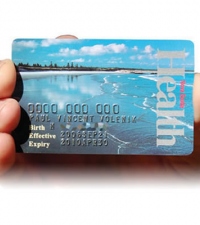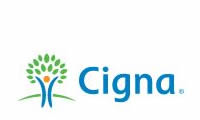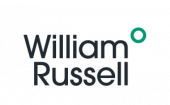Pharmacies in Canada

Pharmaceuticals are issued at pharmacies across Canada. You will find hundreds of pharmacies in larger, urban centers, and at least one pharmacy in most small, rural communities.
Popular national pharmacy chains include Shoppers Drug Mart, PharmaChoice, Lawtons, DRUGStore Pharamacy, Loblaw Pharmacy, Guardian, Pharma Plus, Rexall, Safeway Pharmacy, and Pharmasave.
Most pharmacies are open regular retail business hours, 800hrs/8:00am to 2100hrs/9:00pm. Many pharmacies are open 24 hours a day, seven days a week. Pharmacies do not close on Sundays. Most pharmacies are open on public, provincial, and territorial holidays.
You may also purchase over the counter medications, health products, medical equipment, vitamins, food, household goods, cosmetics and toiletry products, pet products, baby products, electronics, books, magazines, bus tickets, lottery tickets, concert tickets, gift cards, and clothing at many pharmacies.
Filling a Prescription
Once your doctor issues you a prescription, you must bring the hard copy of your prescription to a pharmacy to have it filled. This can generally be done within a few minutes or hours.
When visiting a pharmacy for the first time, you will be asked to provide the pharmacy with you name, address, and phone number. You will also be asked to provide insurance information, such as an insurance card, policy number, and group number.
Some physicians and pharmacies now use electronic prescriptions, in which case you need only visit the pharmacy to collect your medication.
Prescription refills may be conducted over the phone. In the event that your prescription expires or runs out, a physician may telephone your pharmacy to refill the prescription, or you may be required to visit your physician to receive a new prescription.
Payment & Insurance
Depending on your insurance coverage, you may pay for the entire prescription up front and apply for reimbursement after, or you may pay a co-pay of a set amount, or a percentage of the prescription cost.
If you are paying for prescription costs, it is best to contact several pharmacies and inquire about pricing, as pharmaceutical costs vary slightly from pharmacy to pharmacy. Some pharmacies also offer incentive programs, such as reward points.
Over the Counter Medication
Over-the-counter medication is most commonly referred to by its brand name in Canada (e.g. acetaminophen is commonly referred to as Tylenol), which may be different from those in your home country. To obtain the correct medication, describe your symptoms to your pharmacist of physician.
Importing Medications
Health Canada is the body that regulates drug and health products and their importation, distribution, and sale in Canada.
Visitors to Canada may bring into Canada, on their person, a single course of prescribed or over the counter treatment or a 90 day supply based on the directions for usage, whichever is less, of a prescription or over the counter drug, plus one additional course of treatment or 90 day supply. The drug must be for the individual’s personal use, or for a person for whom they are responsible for and travelling with.
Drugs must be shipped/carried in hospital or pharmacy dispensed packaging, original retail packaging, or have an original label affixed to it which clearly indicates what the health product is and what it contains.
Visitors to Canada may also import prescription drugs by mail. Some form of documentation indicating that the drug is destined to a visitor must accompany drugs imported by mail. The visitor should be prepared to present documentary evidence that they are a visitor to Canada (passport, student/work visa, letter from employer, etc.)
Canadian residents may not import drugs by mail.
When importing medication to Canada you may also want to carry supporting documentation such as a copy of your prescription or a letter from the prescribing physician.
Sharps
Sharps containers (for prescription needles/syringes) can be purchased and returned to pharmacies across Canada. Some pharmacies also provide sharps containers free of charge to patients. Most cities across Canada also have drop-sites for sharps containers and hazardous waste, which are run by local, municipal waste collection services. Contact you local municipality for more information.
Contraception
Condoms and pregnancy tests are readily available to purchase at pharmacies throughout Canada. For all other forms of contraception you require a prescription from a general practitioner (GP) or gynecologist. For a referral to a gynecologist, ask your GP.
By Jess Gerrow, who traded city life in Canada for island life in the Mediterranean two years ago. She is a postgraduate marketing student, blogger, and freelance writer.
- My Life Abroad -
A selection of expat stories

"A fun compulsive read!"
J. Matcham, Amazon
"I strongly advise people ready to live abroad to read this book!"
Patrice, Amazon

 Healthcare in Canada
Healthcare in Canada APRIL Travel Insurance
APRIL Travel Insurance Cigna Global
Cigna Global William Russell
William Russell